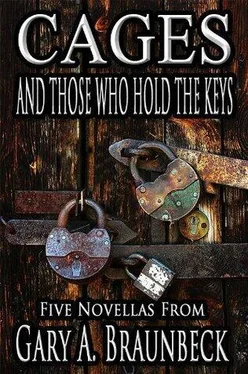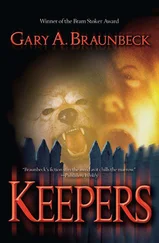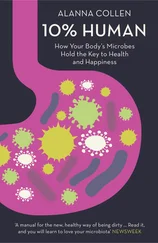The shadow softly sang: “ Ol’ Jack Pumpkinhead lived on a vine/Ol’ Jack Pumpkinhead thought it was fine ...”
She thought there was something different about his voice, but not wanting to ruin this wonderful surprise by analyzing it to death, she answered in song, just as she always had: “ First he was small and green, then big and yellow/Ol’ Jack Pumpkinhead is a very fine fellow. ”
She rose to her feet and turned to embrace him, dearest Jack who’d come back one last time to protect her from the grief and guilt she couldn’t face.
His eyes glowed a sickly orange-red, casting diseased beams through the early evening mist. He was hunched and shuddering, a soul-sick animal.
“I thought you had forgotten about me,” he said, and it was then that Marian knew what was different about his voice; it was no longer the light, happy tenor that she’d given him, it was the sound of an empty house when the door was opened, an empty bed in the middle of the night, or an empty crib that never knew an occupant; dead leaves skittering dryly across a cold autumn sidewalk; the low, mournful whistling of the wind as it passed through the branches of bare trees; it was a sound so completely, totally, irrevocably alone that hearing it just in a whisper’s instant made her long for the warmth and safety of home and hearth: even if her company there was now superfluous, at least she wouldn’t be alone as that sound .
A thin trickle of blood dripped from the corner of Jack’s mouth.
She closed her eyes, wishing away this friend from her childhood, this dear friend who had been so horribly changed and misshapen—
—but why?
She felt the twigs that were his fingers grip her wrists. “I’ve really missed you, Marian. Please don’t be afraid. It’s so cold here, so lonely where everyone is sleeping and you have no friends.”
She opened her eyes, knowing— praying— that his return to her was just an hallucination brought on from lack of sleep the past three days. Maybe she’d just seen one too many houses where the children had constructed horrible Hallowe’en effigies from straw and old clothes, then set them on the front porch to scare the monsters away.
One of Jack’s twig-fingers broke through her flesh. She felt the warmth of her blood as it seeped out, staining her blouse’s white sleeve.
Jack was wearing one of Dad’s old shirts, the one Marian had bought him for Christmas last year.
“Jack Pumpkinhead is still a fine fellow,” he whispered to in that voice. “The quilt’s almost finished. And we put a light in the window for you.” The wind grew stronger. One of the bells in the church steeple swung back, then forth, ringing twice. “Please come home now,” said Jack. “You’re needed.” Her blood was soaking into the bark of his hand. Her legs began to buckle as Jack leaned forward to cover her lips with his crescent mouth in a welcome-home kiss.
Something moved in the distance; another group of tiny spirits broke through the bushes on their way to claim sugary treasures, singing: “ A goblin lives in OUR house, in OUR house, in OUR house, a goblin lives in OUR house, all the year round ...”
Marian broke away, slipped, and fell on top of her father’s grave, half expecting his desiccated hands—
— Let us OUT! Let us OUT! — — to break through the soil and grab her. The church bell rang once more, a brassy chime, Mom’s voice singing to her when she was young and sick with fever. The children’s laughter lingered as the bell fell silent. Autumn-dried leaves blew past her, a few clinging to the hem of her dress.
Jack Pumpkinhead began to fade; color went first, draining away until Jack and everything surrounding him looked like part of an old sepia-toned photograph, disappearing very slowly, an image retained on the inside of the eyelid for an instant, then gone.
Rising unsteadily to her feet, Marian saw the second set of footprints that followed her own and stopped at the edge of the graves.
No. It wasn’t him. It couldn’t have been. Someone must have been here before me and I just didn’t notice the prints, that’s all.
As convincing an argument as it was, it still didn’t stop her from half-sprinting out of the cemetery to her car. She needed to rest but couldn’t until she saw her brother. Maybe seeing Alan after all this time would help to purge her of whatever had made her resurrect Jack.
She started the car, saw the ghostly effigies resting on the porches of nearby homes, and noticed the small gash on the side of her wrist.
Some of her blood dripped onto the steering wheel.
“ Goddammit, ” she whispered, bandaging the wound with her handkerchief. “Welcome home.” Then, trying to force away the image of Jack’s glowing eyes and the mournful echo of his voice, drove away toward the place she once called home.
3
Place two fabrics right sides together, making sure to rotary cut strips the width of the square template you are using; if the strips weren’t compatible when you cut them, do so now, layering them, and making individual alterations as necessary in order to achieve conformity.
* * *
The house of her childhood stank of grief; even from outside, she could smell it. She slipped her key into the front door lock and held her breath, anxiously aware of the sound made by the October leaves as the wind scattered them across the pavement; the dry whisper of sorrow, the crackle of old guilts trying to step out of dank corners and pull her in with the stab of twig-fingers.
It wasn’t your fault you missed the funeral , she told herself, hoping to believe it. Alan will understand.
She swallowed, released the breath she had been holding in since pulling up, felt her skin tingle with the bleak cold of descending night, and walked inside. Closing the door, she started slightly at the sound of the gas furnace snapping on, then removed her coat and tossed it into an empty chair.
Although it was barely 7:15 the interior of the house held layers of blackness that deepened with every step she took. She longed to be back in Los Angeles, but she had a responsibility to her brother.
Responsibility . It seemed like such a corrupt word right now. Alan had given over most of his youth to the responsibility of caring for the family; keeping the house clean, doing the laundry, the cooking, shopping for groceries, never moving out because that would’ve meant having to face the world without the security of a family— something Alan, for all his good intentions, could not live without. He had always been terrified of other people; it was amazing to Marian that he’d ever been married.
Next to the front door was a table that held three glass bowls filled with goodies for the trick-or-treaters; two were overflowing with candy, the third contained—
— she felt a shiver, shook it away—
— pumpkin seeds. Even now, with Dad less than a week in his grave, Alan still held fast to the family traditions; Dad always gave each beggar a handful of pumpkin seeds so they could plant them and grow their own jack-o’-lanterns for next year.
“Alan?” she called. When there was no answer, she walked into the living room. Ice formed on her spine as she saw what was draped over one of the recliners.
The stale aroma of a dead woman’s perfume enveloped her as she leaned down toward her mother’s old housecoat. It was arranged in such a way that Marian almost expected to see Mom descend from above, slip neatly into it, and ask that the television be turned on, she’d had a long day and was tired and wanted to see her shows, please.
Marian’s faded and discolored First Communion dress was arranged on the couch so that it faced the television, Grandpa’s old but well-kept three-piece (what he called his “church suit”) was in the reading chair in the next room, a book on its lap, the light turned squarely on the open page.
Читать дальше












